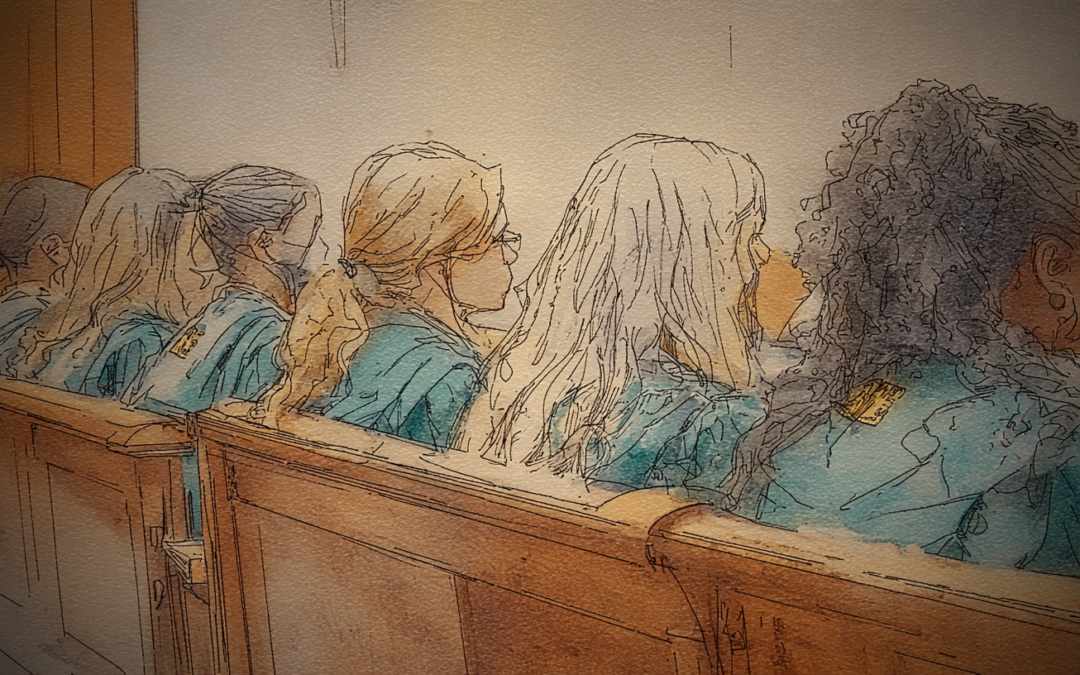The courts or judge will not be determining if you are guilty or innocent. The hearing is to establish the bail amount, based on a number of factors which include things like “flight risk” or the severity of the crime.
The determination is if the defendant will behave properly if released and will cooperate fully and show up for all court appearances. Most of the time bail is set based on a standard schedule based on what you were charged with when arrested and the seriousness of the crime.
Some courts are using a more advanced calculator that use algorithms to set bail that will take into account age, criminal history, and risk level. The bail hearing tends to be more informal. Both parties (prosecution and defense) will be heard and witnesses can even be called. The defendant will have the opportunity to hear and respond to the charges and presentation the municipality makes. The bail hearing is open to the public.
You may have an attorney represent you at a bail hearing also. I am sure you can see the benefits of having a criminal defense attorney to argue the issue of bail. Your attorney may also arrange for family members or friends to show up in court, as a roommate, to reassure the court that the defendant will have a place to go to if released.
The judge can also lower the bail or require no bail for the defendant to be released. The judge may also set higher or not allow for bail (defendant will remain locked up while awaiting trial) if they think the defendant is a flight risk or has missed several court appearances in the past. Another point of consideration for the judge is if the defendant will commit any other crimes while awaiting trial. Failing to appear or abide by judge’s orders may result in forfeiture of bail so higher bail.
Bail Hearings in Washington State: What You Need to Know
If you or a loved one has been arrested and charged with a crime in Washington State, you may have questions about bail and bail hearings. Here are some common questions and answers about the bail process in Washington State:
Q: What is bail?
A: Bail is an amount of money or property that a defendant provides to the court as a guarantee that they will appear for their trial. If the defendant fails to appear in court, they may forfeit their bail and be returned to jail.
Q: What happens at a bail hearing?
A: At a bail hearing, the judge will determine whether to set bail for the defendant, and if so, how much bail to set. The judge may also consider whether the defendant is a flight risk or a danger to the community when making their decision.
Q: Can the judge refuse to set bail?
A: Yes, the judge may refuse to set bail if they believe the defendant is a flight risk or a danger to the community. In such cases, the defendant will remain in jail until their trial.
Q: Can the defendant request a lower bail amount?
A: Yes, the defendant or their attorney may request a lower bail amount at the bail hearing. They will need to present evidence to the judge that supports their request.
Q: Can the bail amount be increased after it is set?
A: Yes, the judge may increase the bail amount if the defendant violates the terms of their release or if new information arises that suggests the defendant is a flight risk or a danger to the community.
Q: What happens if the defendant cannot afford the bail amount?
A: If the defendant cannot afford the bail amount, they may use the services of a bail bond agent. The agent will provide a bond to the court that covers the full amount of the bail. The defendant will pay a non-refundable fee to the agent, 10% of the bail amount, and the agent will be responsible for ensuring that the defendant appears in court.
Q: What happens if the defendant misses a court appearance?
A: If the defendant misses a court appearance, the court may issue a warrant for their arrest and forfeit their bail. The bail bond agent may also hire a bounty hunter to locate and return the defendant to court.


Recent Comments